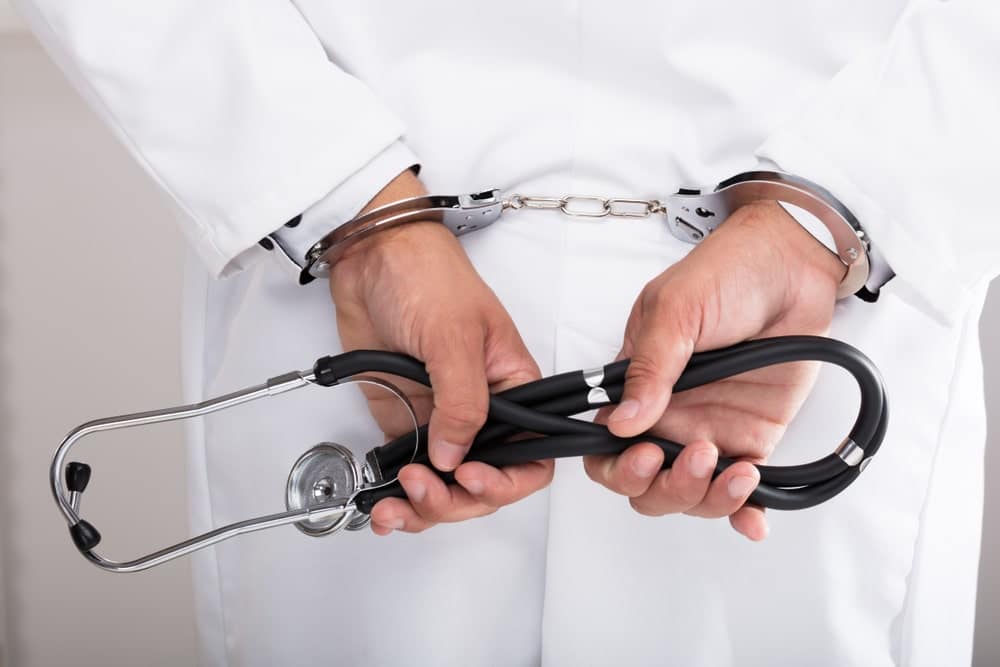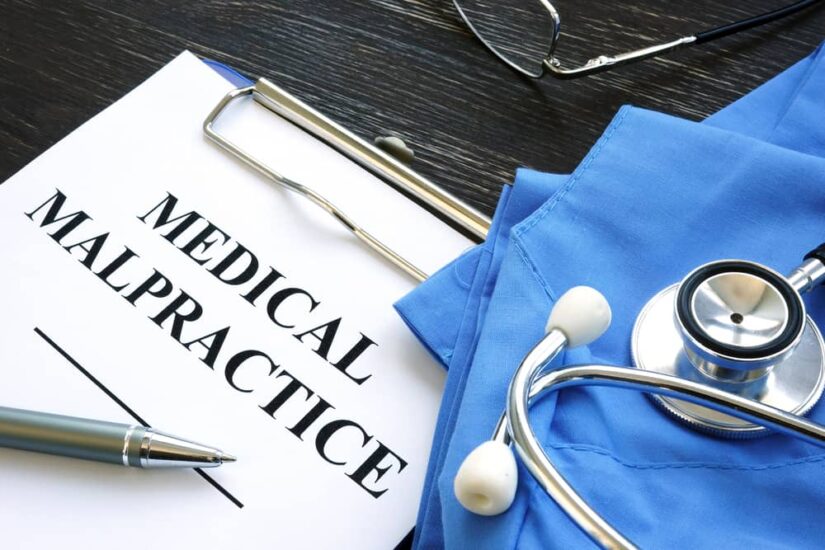What Four Things Must Be Proven in a Medical Malpractice Case?
By Ben Gobel on September 17, 2024

Medical malpractice is a term that often evokes fear and uncertainty. It refers to situations where a healthcare provider’s negligence leads to patient harm. Common types of medical malpractice cases include misdiagnosis, surgical errors, medication mistakes, and birth injuries.
These cases can have devastating consequences—both physically and emotionally—for the affected individuals and their families. Proving malpractice is crucial for obtaining compensation to cover medical expenses, lost wages, and other damages.
This blog post will explore the four essential elements of medical malpractice that must be proven in your case, and provide insights into the legal process involved.
The Four Elements of Medical Malpractice Cases
Duty of Care
The first of the four medical malpractice lawsuit requirements is establishing the duty of care. This refers to the legal obligation of healthcare providers to adhere to a standard of care when treating patients. The standard of care is generally defined as the level of care that a reasonably competent healthcare professional with similar training and experience would provide under similar circumstances.
To prove duty of care, you must demonstrate that a doctor-patient relationship existed, meaning the healthcare provider agreed to diagnose or treat you.
Breach of Duty
Once the duty of care is established, the next step in your medical malpractice claim is to prove that the healthcare provider breached this professional duty. A breach of professional duty occurs when the provider fails to meet the standard of care, either through action or inaction. This could involve making a mistake during surgery, failing to diagnose a condition, or prescribing the wrong medication.
To establish a breach of duty, you often need expert testimony from other medical professionals who can explain how the standard of care was not met in your case.
Causation
The third element in proving medical malpractice, causation involves proving that the breach of duty directly caused your injury. This can be one of the most challenging aspects of a medical malpractice case, as it requires showing a direct link between the healthcare provider’s negligence and the harm you suffered.
For example, if a doctor failed to diagnose a condition in a timely manner, you must demonstrate that this delay directly resulted in your injury or worsened your condition. Medical records, expert testimony, and other evidence can be crucial in establishing causation.
Damages
The final element that must be proven is damages. This refers to the actual harm or injury you sustained as a result of the healthcare provider’s negligence. Damages can include physical pain, emotional suffering, medical expenses, lost wages, and other financial losses.
To prove damages, you will need to provide documentation such as medical bills, employment records, and personal testimony about the impact of the injury on your life. The goal is to demonstrate the extent of your suffering and the financial burden you have incurred due to the malpractice.
Steps Involved in Filing Medical Malpractice Lawsuits
Filing a medical malpractice lawsuit involves several steps. First, you must consult with an experienced medical malpractice attorney who can evaluate your case, determine if medical negligence occurred, and tell you if you have a valid claim. If so, your medical malpractice lawyer will gather evidence, including medical records, expert opinions, and witness statements, to build a strong case.
Next, a formal complaint will be filed with the court, outlining the allegations against the healthcare provider. The defendant will then have an opportunity to respond, and the discovery process will begin, during which both sides exchange information and evidence.
What to Expect During the Litigation Process
The litigation process can be lengthy and complex. After the initial filing and discovery phase, both parties often engage in settlement negotiations to resolve the case without going to trial. Settlement discussions can be facilitated through mediation, where a neutral third party helps the parties reach a mutually agreeable resolution. Settlements can save time, reduce legal costs, and provide a quicker resolution for both parties.
Both parties may engage in settlement negotiations to resolve the case without going to trial. If a settlement cannot be reached, the case will proceed to trial, where both sides will present their arguments and evidence before a judge or jury. After the trial, either party may file post-trial motions, such as motions for a new trial or motions to alter the judgment. If either party is dissatisfied with the outcome, they may appeal the decision to a higher court, which can further extend the litigation process.
Throughout this process, your attorney will advocate on your behalf, ensuring that your rights are protected and that you have the best chance of obtaining a favorable outcome. They will handle all legal filings, gather and present evidence, negotiate settlements, and represent you in court. Having an experienced attorney by your side can provide peace of mind and increase your chances of success.

How Ogg, Murphy & Perkosky Navigates Medical Malpractice Cases
The medical malpractice lawyers at Ogg, Murphy & Perkosky understand the challenges and complexities of medical malpractice cases. Our experienced Pittsburgh personal injury attorneys provide compassionate and effective representation for our clients. We work tirelessly to investigate the details of your case, gather evidence, and consult with medical experts to build a strong claim. Our goal is to help you secure the compensation you deserve and hold negligent healthcare providers accountable for their actions.
Proving a medical malpractice case requires establishing four key elements—duty of care, breach of duty, causation, and damages. While the process can be daunting, having an experienced attorney who can prove a physician acted negligently can make a significant difference.
If you or a loved one has been harmed due to medical negligence, contact Ogg, Murphy & Perkosky. Our skilled Pittsburgh medical malpractice attorneys are here to guide you through the legal process and fight for your rights. Contact us today at 412-471-8500 for a free consultation and take the first step toward obtaining the justice and compensation you deserve.
